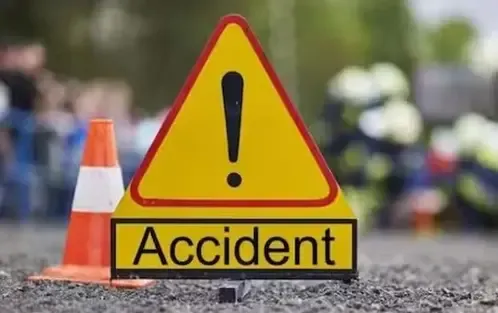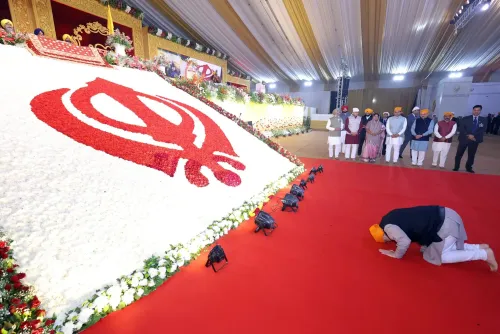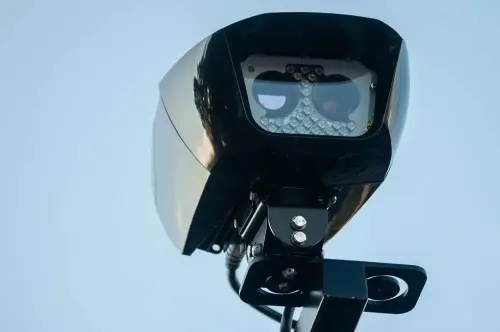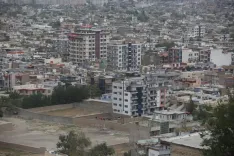Why is the Supreme Court Criticizing the Centre and States on CCTV Compliance?
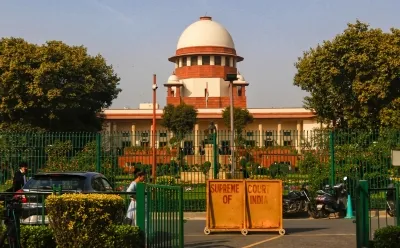
Synopsis
Key Takeaways
- Supreme Court demands compliance with CCTV mandates in police stations.
- Only 11 states have submitted compliance affidavits.
- Non-compliance could lead to mandatory appearances by state officials.
- CCTV systems are critical for preventing custodial abuse.
- Deadline for compliance is set for December 16.
New Delhi, Nov 25 (NationPress) The Supreme Court expressed strong discontent towards the Centre and various state governments on Tuesday regarding their persistent failure to comply with directives requiring operational CCTV cameras in every police station.
A panel comprising Justices Vikram Nath and Sandeep Mehta, engaged in a suo motu case named 'In Re: Lack of Functional CCTVs in Police Stations', commented that the Centre seemed to treat the apex court's instructions “with utter disregard”.
During the proceedings, the Justice Nath-led panel noted a media report indicating that 11 individuals died while in police custody in Rajasthan within the initial eight months of 2025, with seven fatalities occurring specifically in the Udaipur division.
Senior advocate Sidharth Dave, serving as amicus curiae for the court, presented a comprehensive chart detailing compliance status from various states.
He pointed out that many states have not adequately addressed the Standard Operating Procedures (SOPs) necessary for the installation, upkeep, and data retention of CCTV systems.
The panel noted that Madhya Pradesh has set a precedent as a “model state”, with all its police stations connected to a central surveillance control room.
The Supreme Court expressed strong disapproval of the Centre's lack of submission of an affidavit or compliance report despite multiple requests.
“The Union remains non-compliant. Why is the Union treating the court with such indifference?” questioned the Justice Nath-led panel.
Solicitor General Tushar Mehta, representing the Centre, assured the court that an affidavit would be submitted, to which the court responded that what was needed was “not merely an affidavit, but actual compliance”.
“This nation will no longer endure this stain,” the apex court emphasized. The amicus also noted that agencies like the NIA and CBI lack dedicated funding for CCTV infrastructure.
In its directive, the Supreme Court acknowledged that only 11 states and UTs had submitted compliance affidavits regarding the suo motu issue. The Justice Kant-led panel has granted a final three-week period, instructing the remaining states and Central agencies to file their affidavits by December 16.
The apex court clarified that failure to comply would necessitate the personal attendance of the Chief Secretaries of the non-compliant states and the heads of the relevant investigative agencies.
The Supreme Court previously mandated the installation of CCTV cameras in police stations to ensure transparency and reduce instances of custodial abuse.
It specified that no area within a police station should be left without coverage and that footage must be retained for a minimum of 18 months, either digitally or on network video recorders.
Earlier in 2023, the apex court provided the Centre and states a “final opportunity” to comply within three months, also holding Station House Officers (SHOs) personally accountable for the upkeep, data backup, and repair of CCTV systems.

